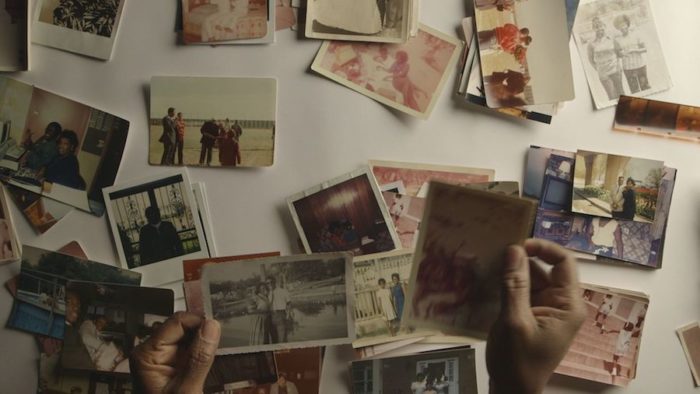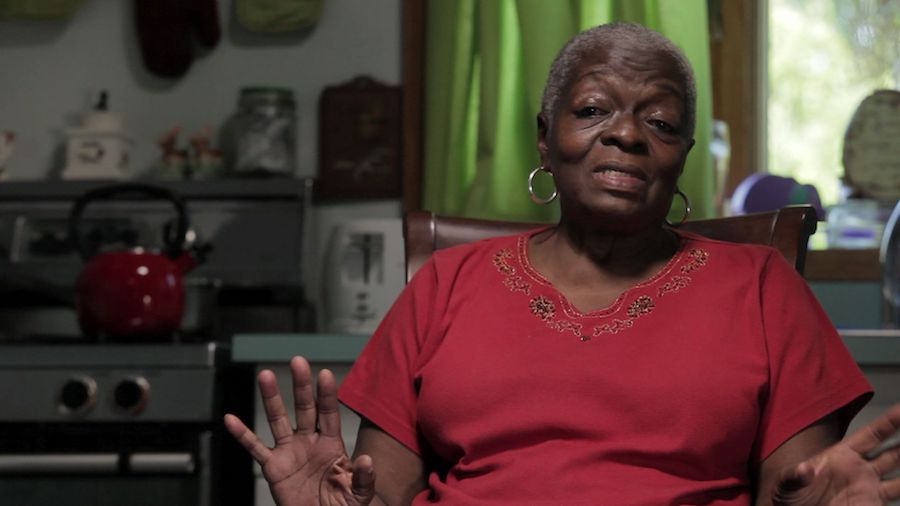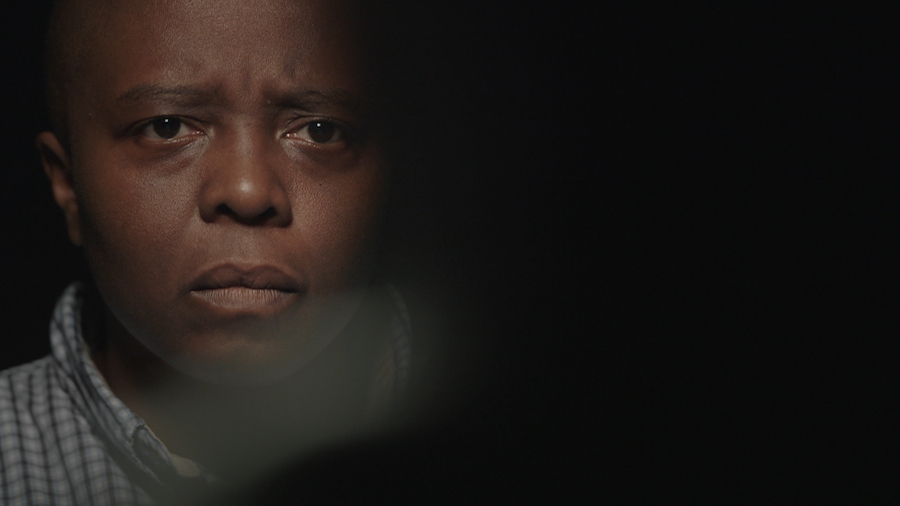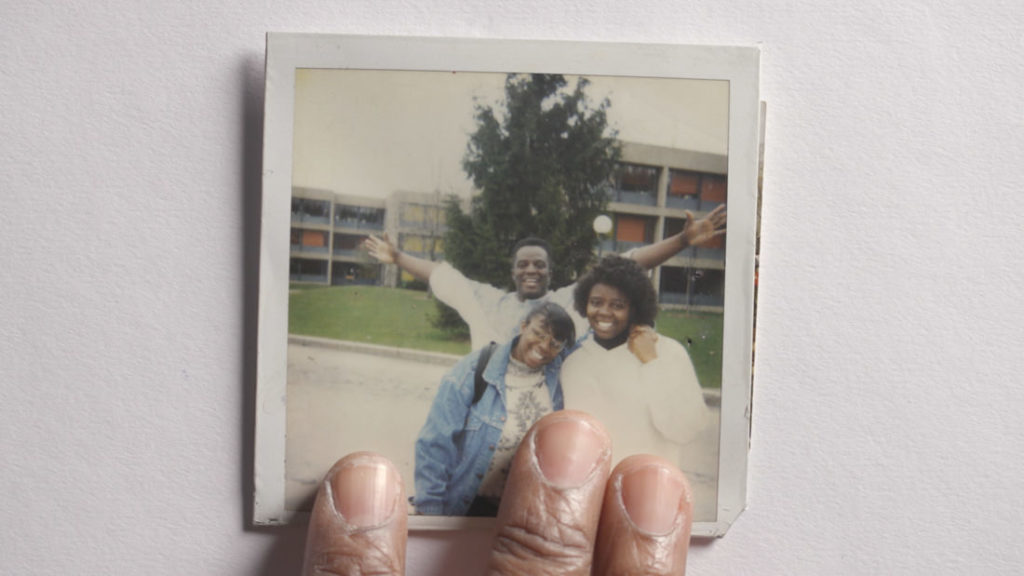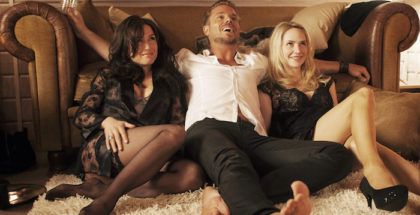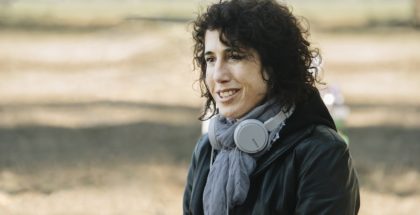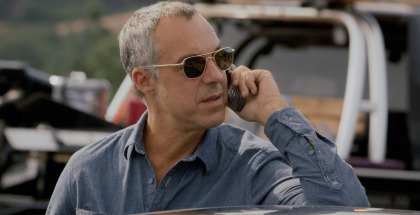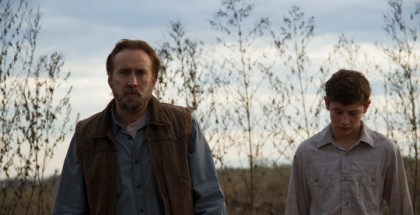Strong Island: “An entire family can have their experience affirmed”
David Farnor | On 17, Sep 2017
This weekend sees the release of Strong Island, a powerful, personal documentary that began a quarter of a century ago, when William Ford Jr. was killed by a white mechanic in New York. Although William was unarmed, he became the prime suspect in his own murder.
25 years later, director Yance Ford turns his camera upon his family to explore how his brother died – and asks why. Intimate, meditative and important viewing, the documentary untangles his own grief from America’s long history of criminal injustice and the still-enduring shadow of racism. It’s a profound, deeply moving piece of cinema, one that Yance felt he needed to make, not just for himself, but to tell a story that can now be heard around the world.
When William Ford Jr. was murdered, Yance was a young art student. It was not until much later, though, that he felt the courage and need to capture that story on camera. We sit down to speak with him about deciding to ask important questions and not stepping back from personal grief.
“I had been using his death as subject matter in my art practice,” he explains, although he took an initially different path in his career. “Very simply, I decided to make the film when the silence became harder to bear than the fear of telling the story. And at that point, I realised I had nothing to lose by breaking my silence and telling my family’s story. And so, it began.”
It’s impossible to grasp how difficult that process must be, separating Yance’s connection to the story from the professional task of assembling an investigation.
“I have the mixed privilege of being able to tell the story, because it happened to me, and I am in this world and happen to be able to make this film,” reflects Yance, “but the inquiry is two-fold: it goes very quickly from, for me, in making this film, the inquiry shifted when I moved from ‘What happened?’, which is very simple to answer, to ‘Why’. That’s when the complexities began to reveal them selves. That’s why, much like Rashomon, we return, there’s this elliptical structure to the film, so that each time we go back to the scene of the shooting, we learn more information.”
“There’s this perception that often the official version of the truth is somehow unquestionable…”
The questioning and uncovering of information continues throughout the film – right up until the final five minutes, we’re still learning new details. That constant inquisition was central to the movie. says Yance.
“There’s this perception that often the official version of the truth is somehow unquestionable. And I think Strong Island shows that, oftentimes, the official versions of events are arrived at by asking the wrong set of questions, or an incomplete set of questions, so the film sets out to ask a full and complete set of questions about why my brother’s death happened. We arrive at a truth that people have to wrestle with: how do we determined whose fear is reasonable? What is reasonable fear? Everyone says they’re scared when they kill Black people in America, but the system will never be jus, until we scrutinise that fear as much as we scrutinise the lives of the dead, so Strong Island does two things: we are fully transparent about the life of the dead person, and, at the end, we turn back the question on the audience about whose fear is reasonable. It’s not two separate things: it’s one very complex thing.”
Piecing together something so complex is a Herculean task, even without being personally involved in the story. Overall, the whole project took four and a half years to complete.
“I had fantastic creative partners in my producer Joslyn Barnes and my co-producer Signe [Byrge Sørensen], who also worked on The Act of Killing. Joslyn did The Black Power Mixtape and Uncle Boonmee Who Can Recall His Past Lives,” explains Yance. “She was a constant presence in the edit and a welcome presence – she brought to the line of question a vantage point that I did not have, which was from the outside, looking at this experience and pushing questions and pushing to find answers to questions via the inquiry that essentially is the structure of the film.”
Yance worked with two editors to help bring an external perspective to the process:
“The two of them, Jocelyn and Signe, put their brains together. Joslyn immediately somehow recognised that there was something Danish about the film, and she proposed to me that we look to Denmark for an editor, and that’s when we went to meet with Janus [Billeskov Jansen] and Shannon [Kennedy]. We spent three days with them looking at footage and talking about the film.”
The structure was arrived at after a “lot of hard work”, with Yance living in Denmark for a year to work on the film. It was only during that process that he realised that he would have to be in the film too.
“I had been shooting interviews and we had been interviewing me, over the course of a four and a half years, alongside everyone else we had been interviewing. At first, even though I didn’t want to be on camera, I thought we might use my voiceover from interviews, or that I would only appear on camera, if I somehow played my brother on screen,” he adds. “We had an initial rough cut where I was barely in the film, but when I got to Copenhagen and the four of us sat down to watch the footage, it was clear that my character was the ballast to my mother’s character, and could balance her very clear telling of the family history with a different type of insight into the effects of my brother’s murder, both upon his friends and family, but from my perspective.”
“I created as much of a feeling of being alone with myself as I could”
The interviews themselves are astonishingly raw to witness, as he opens up to talk slowly and thoughtfully about his thoughts, feelings and reactions to his brother’s death. It’s a brave step, making himself so vulnerable on camera – and it was the result of creating a safe space for him to be that honest.
“What I did was collaborate with an interviewer, who was a filmmaker, and my producer and my editor and the interviewer would figure out together what needed to be asked, and, of course, over four and a half years, those questions changed and evolved and the list grew longer and deeper.”
He went into those interviews deliberately not knowing what the questions would be.
“To create a safe space for myself as subject, I literally had a wall of sound blankets between myself and everyone else in the room, so the only thing I saw in the black void we created with the wonderful lighting design done by my cinematographer, so the only things I could see were two camera lenses and two white pieces of tape, which were my marks. The interviewer on the other side on the blanket could see me, he had a monitor, and I could hear him, but I couldn’t see anyone. I created as much of a feeling of being alone with myself as I could, while in a room full of people.”
The result is a film that was well received at Sundance at the start of this year and also connected with audiences at Sundance London in the summer. There’s a universal importance to Yance’s tale, but did he expect that reaction from such an intimate project?
“I think that Strong Island has connected with people because the story begins with family. The story does not begin with a murder,” he comments. “The film evolves, as the family changes, into a very different experience. We move from this family that is very familiar to many people to this experience that most people in the audience have not had, but you’d be surprised how many people in the audiences around North America have said they’ve had similar experiences. So I think the clarity of the storytelling – it’s direct to camera because I wanted the audience to feel like they were in conversation with my character and my mother as well – and I think that the questions the film asks are questions that people are actually engaging with. The fact that there’s no easy out in the film and the fact that there are no rhetorical questions has really grabbed people in a way that they didn’t expect. They might have expected a film that was built on grief, and Strong Island is actually a film that is built on a multiplicity of emotions: anger, rage, sadness, silence. All of the things we recognise in life as complex and true. And I think that’s part of why the film has had the success that it’s had.”
“I think the other part is my mother is just a fantastic character,” he continues. “You can interview my mother on the sidewalk and she would command the street. She’s the film’s secret weapon!”
“An entire family can sit down and have their experience affirmed”
Shortly after Strong Island’s premiere, Netflix acquired the worldwide rights to the movie. Was that a surprise?
“Personally, I think that’s fantastic,” says Yance. “It wasn’t something I was expecting, but the team at Netflix, they got the film. In our first conversation, it was really clear that they had watched the film carefully and they understood the complexity of the issues in the film. And for a film like Strong Island, which didn’t get any interest from theatrical distributors, which I thought would be the case, you know, post-Moonlight, post-Get Out, I thought the film would appeal to distribution companies that had “taken a chance” on films that were similar to Strong Island, but we weren’t on the radar for those at Sundance, and other companies simply declined because it wasn’t in their wheelhouse. Netflix said in no uncertain terms ‘This is the kind of film that we want to support, this it the kind of filmmaker whose voice is essential in the global conversation about these issues’.”
Distributing via Netflix does turn Strong Island’s questions into a global conversation, one that is more widely available to participants from all walks of life, without having to track down the movie in a cinema. Yance says he “thrilled” about the launch.
“The price of a movie ticket is accessible to a lot of people, but it’s also inaccessible to many more people. With Netflix, with one subscription, an entire family could sit down and watch Strong Island and have their experience affirmed, as opposed to being told over and over that they’re crazy and that race has nothing to do with why their loved one is dead.”
Strong Island is available on Netflix UK, as part of an £9.99 monthly subscription.


